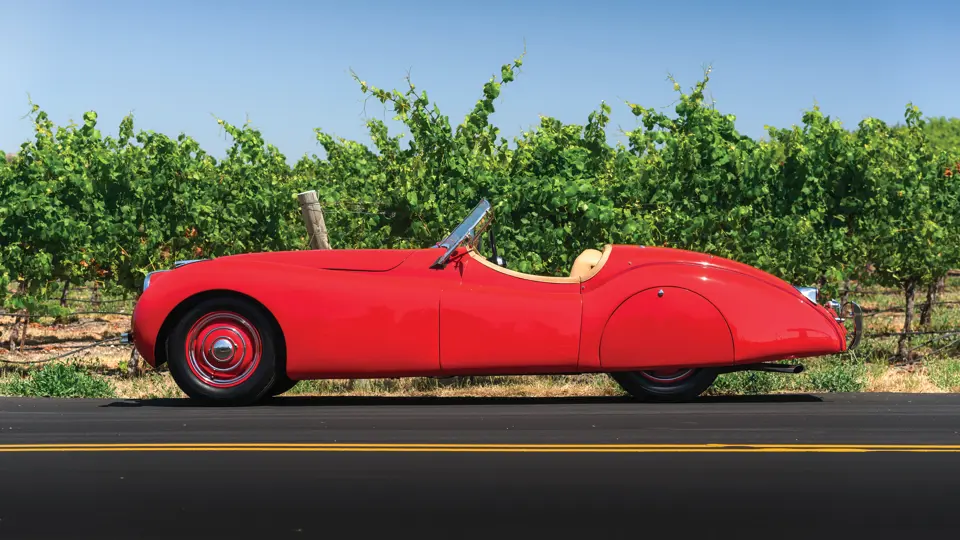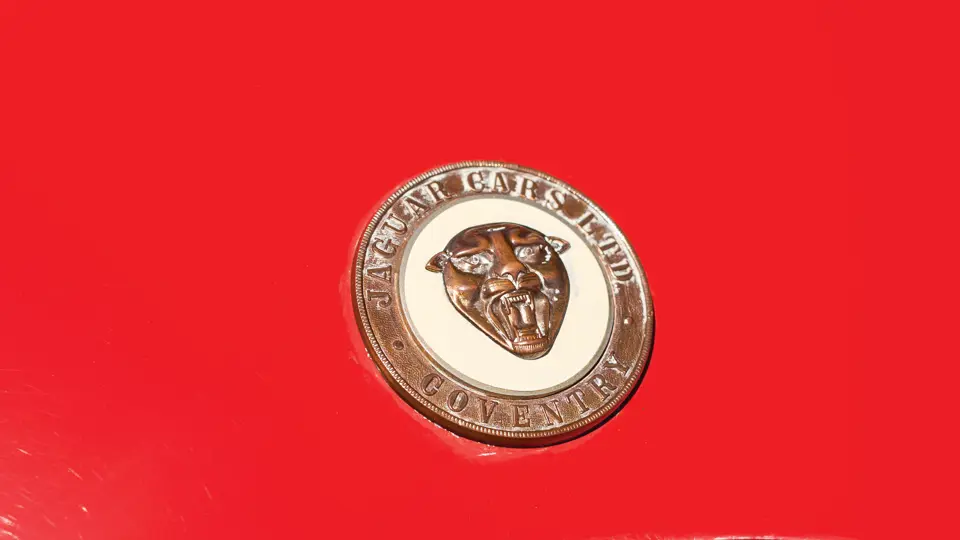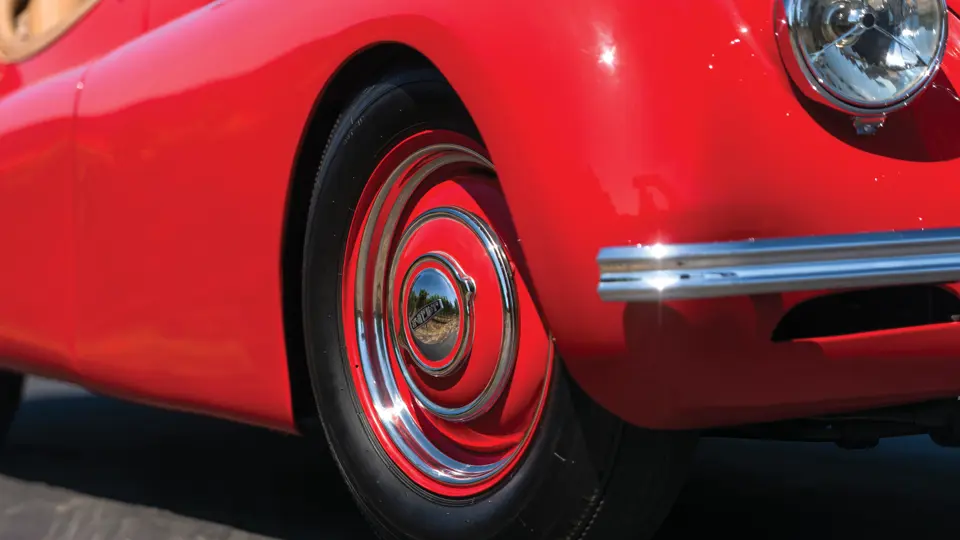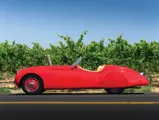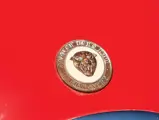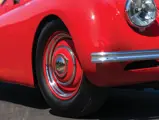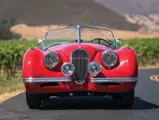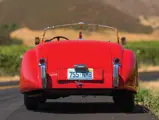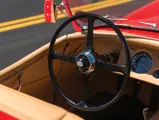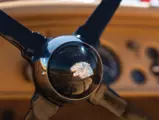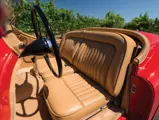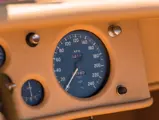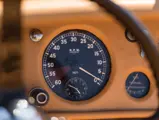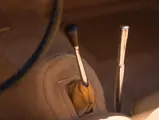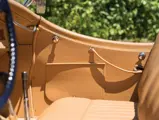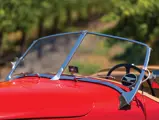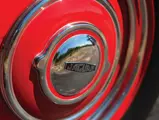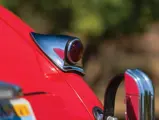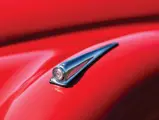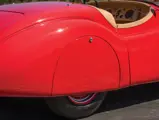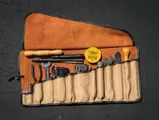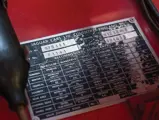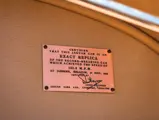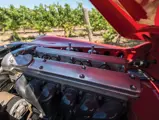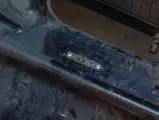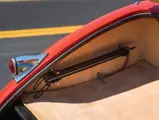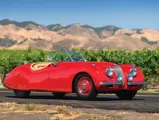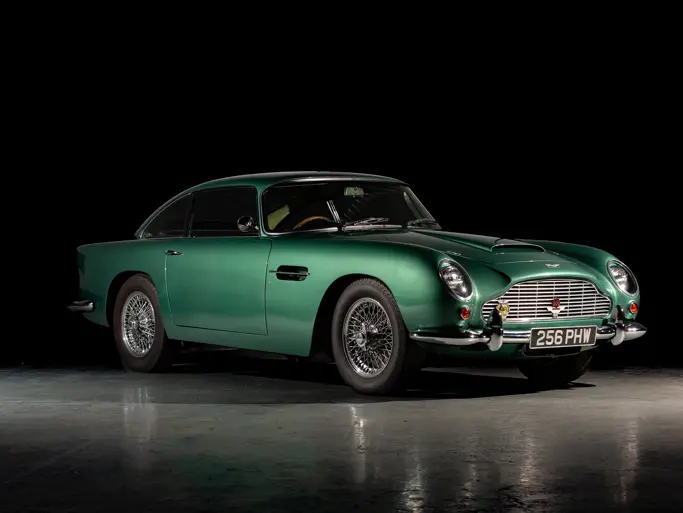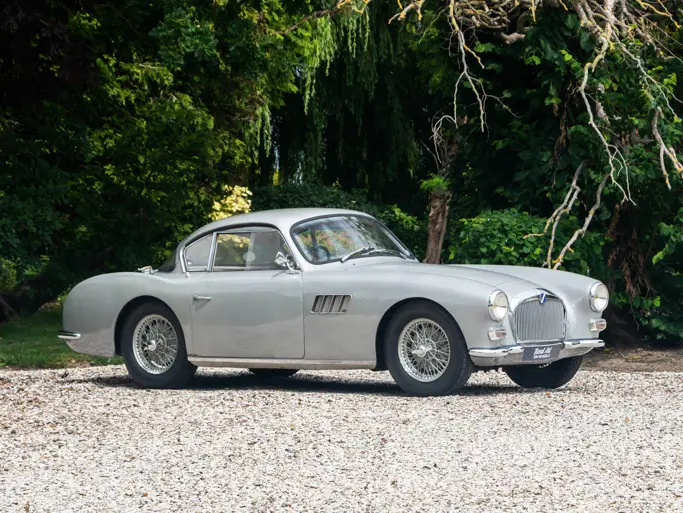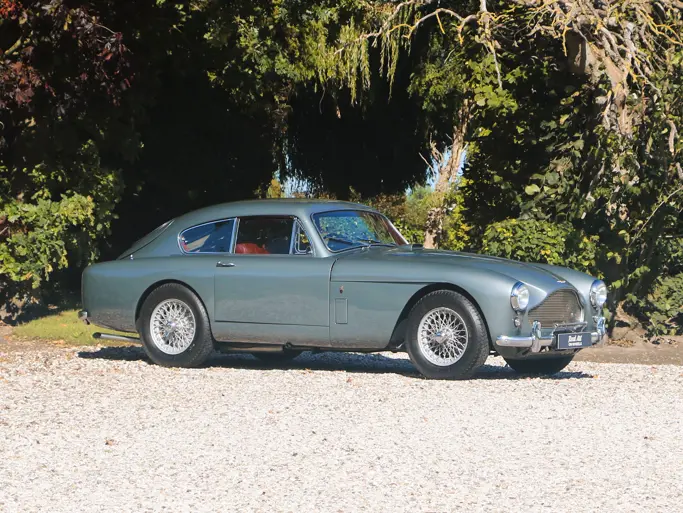
1950 Jaguar XK 120 Alloy Roadster
{{lr.item.text}}
$300,000 - $400,000 USD | Not Sold
{{bidding.lot.reserveStatusFormatted}}
- The 111th of only 184 left-hand-drive alloy-bodied XK 120 roadsters
- Finished in original color combination
- Former JCNA class winner as well as Best of Show recipient
- Accompanied by Jaguar Daimler Heritage Trust (JDHT) Certificate
The Jaguar XK 120 began life as the sole experimental “100” coupe, built in 1938 for the Earls Court Motor Show in London. It featured the familiar long hood and sloping tail, but bobbed fenders replaced the swooping wings of the SS 100. William Lyons modernized the idea after World War II, with flowing lines and a brand-new 3.4-liter twin-cam engine. The first XK 120 was built in only six weeks for London’s 1948 Earls Court Motor Show, and it was a sensation.
The first 242 cars were built with aluminum panels over a wood frame since aluminum was light and easy to work, and it was not rationed like steel. Lyons originally planned to sell 200 XK 120 OTSs (open two seaters, or roadsters), but at only £998, orders poured in so fast that he was eventually forced to switch to steel bodies, which could be built much faster, and in large numbers.
With typically British understatement, the “120” signified the car’s top speed. In May of 1949, Jaguar test driver Ron Sutton achieved a top speed of 126.448 mph. A later run with the tonneau fitted on the passenger side, a metal airflow deflector, and the hood, side-screens, and windscreen removed the XK 120 achieved a top speed of 132.596 mph.
In all, there were 7,631 XK 120 roadsters built from 1949–1954, and 2,678 coupes between 1951 and 1954. The weather-tight drophead coupe arrived last, with 1,769 produced in 1953 and 1954. With only 242 examples bodied in aluminum, these earliest XK 120 roadsters are by far and away the most desirable examples.
According to the accompanying JDHT Certificate, the alloy roadster on offer was built on 26 January 1950. A factory left-hand-drive example, it was finished in Red with a two-tone Biscuit and Red leather interior, with a Fawn convertible top. The car was shipped on 10 February 1950 to CAMAV, the Jaguar distributor in Caracas, Venezuela, a country that at the time had its fair share of wealthy sports car enthusiasts. As is common with many exported Jaguars, early ownership of the car is unknown.
In 1979 the Jaguar resurfaced under the ownership of James Caraher of Tacoma, Washington. The XK 120 was restored under Caraher’s tenure and later sold to Robert Ames of Seattle in the late 1980s. Ames proceeded to refine the restoration and elevate the car to concours condition. Shortly thereafter it was entered in the fourth Biennial JCNA Concours at Bend, Oregon, in August 1989, winning its class with 99.36 points as well as being awarded Best of Show, as confirmed by the JCNA.
The Jaguar was acquired in the early 2000s by a new owner. In 2017 the car was sorted by XKs Unlimited of San Luis Obispo, California, following many years of climate-controlled storage. Later in 2017 the car changed hands once again, and following a little over a year of ownership, this stunning alloy-bodied Jaguar is once again offered for sale. Much of the original restoration is well preserved and still very authentic. The original engine block matches the JDHT certificate, though the cylinder head is an unstamped replacement unit. Further, the car is accompanied by a correct tool kit, air pump, and jack.
An XK 120 is a figurehead of any proper sports car collection, and this is a fine example, with its rare alloy coachwork, an interesting history, and excellent enthusiast care throughout the years.


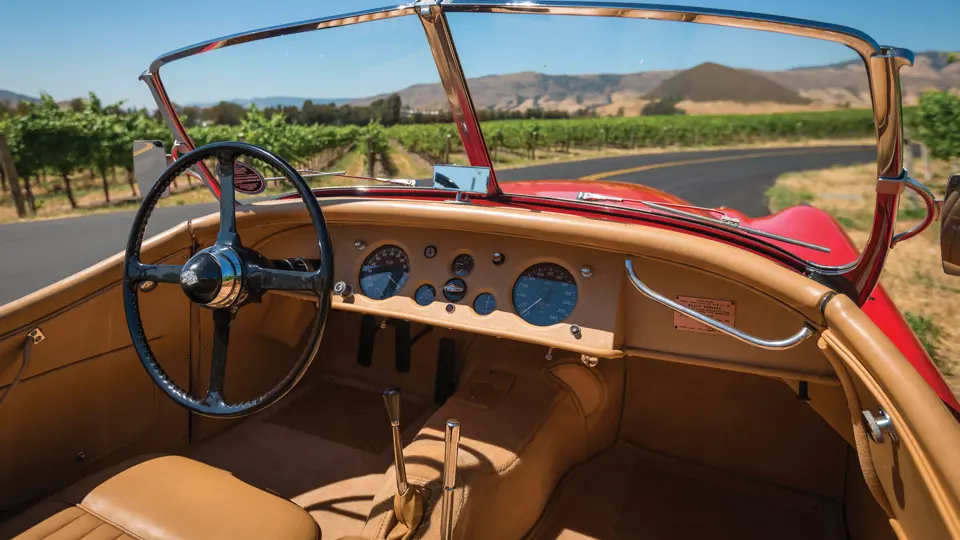

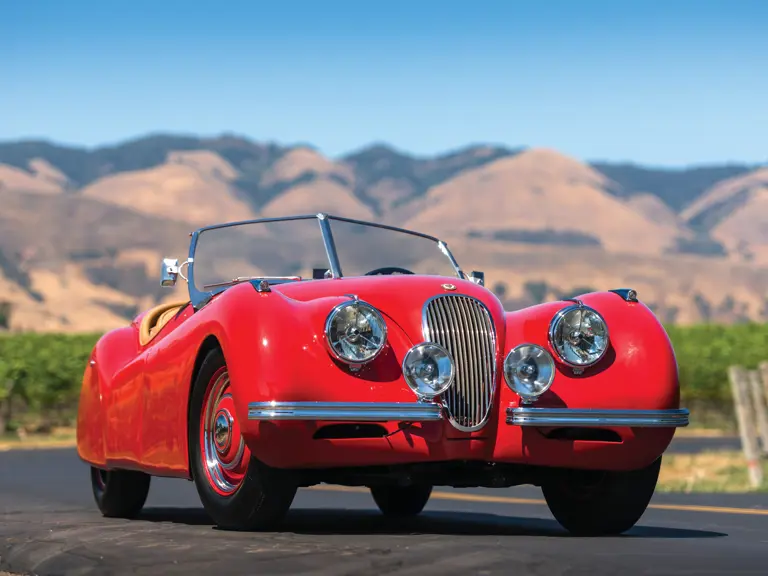
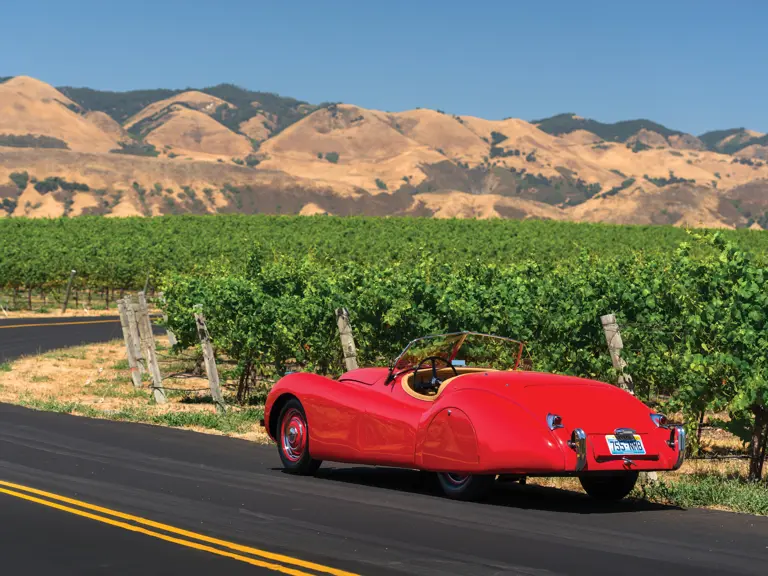
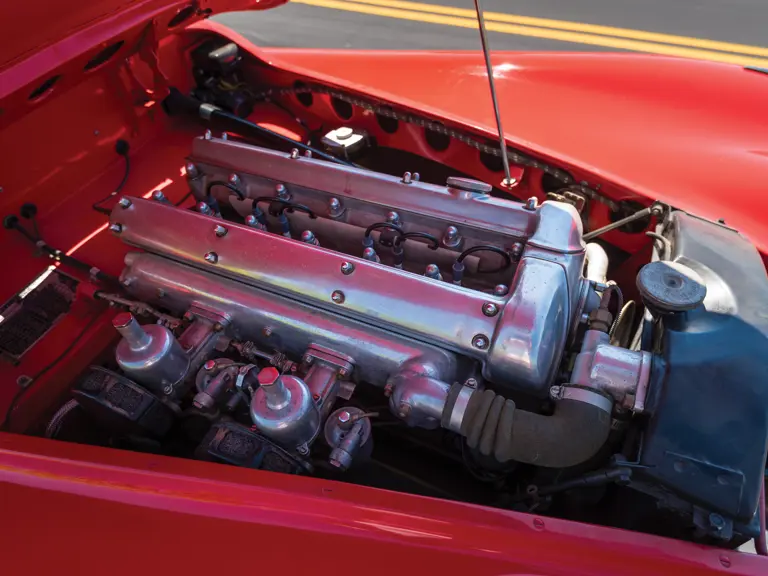
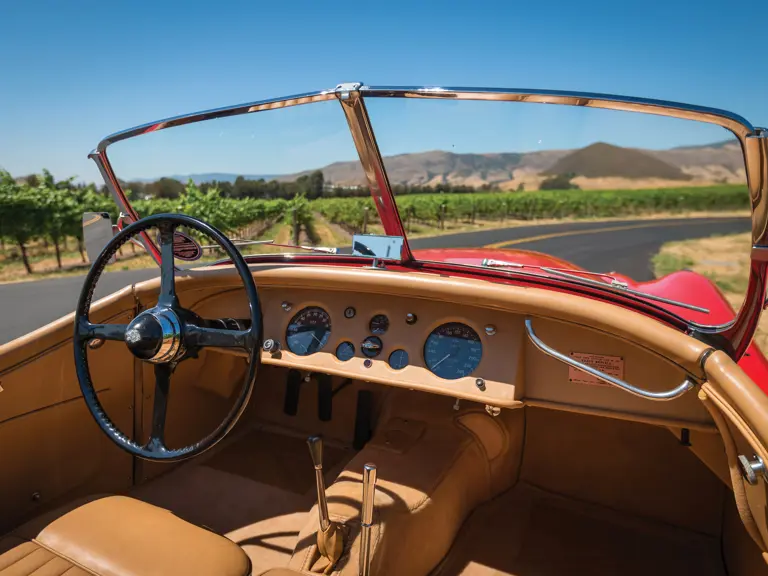
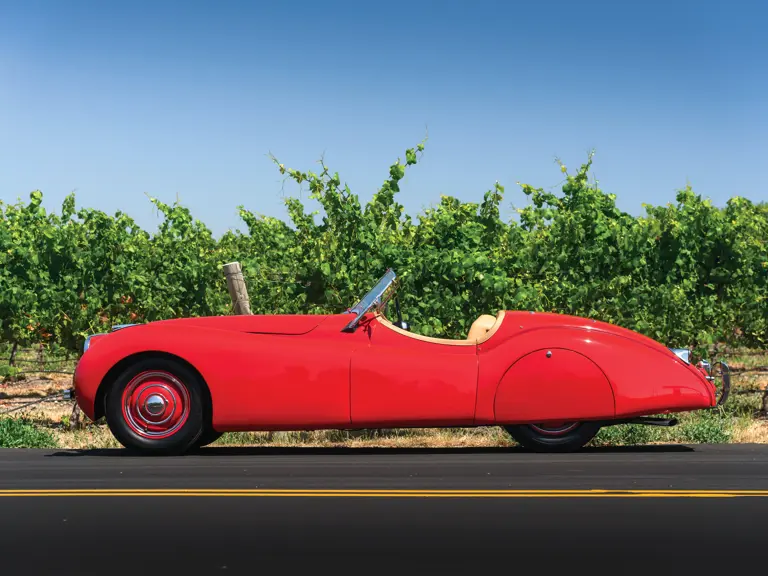
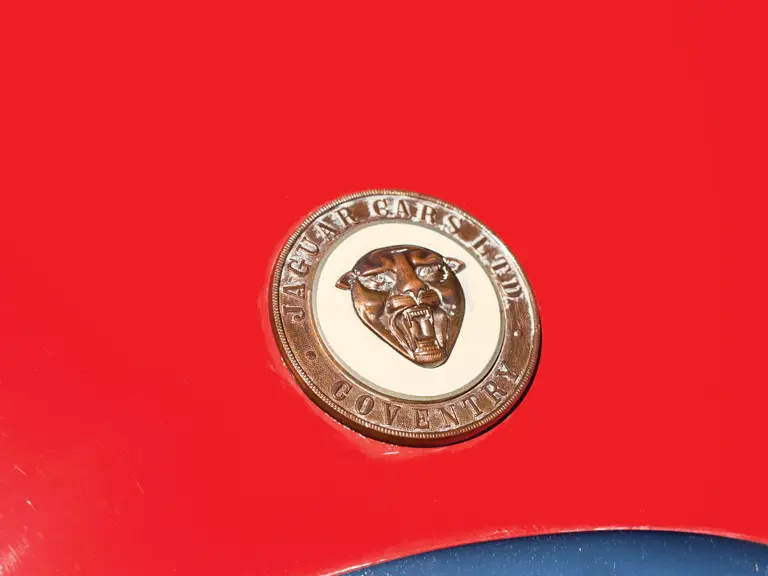
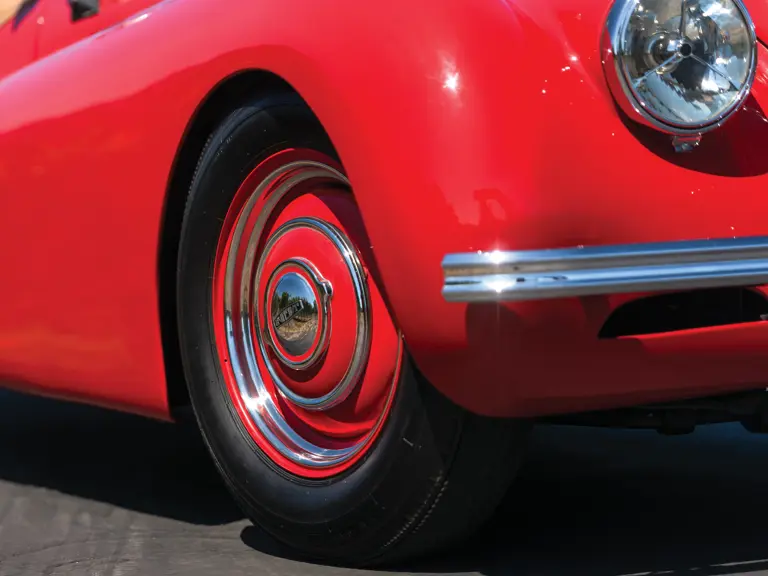
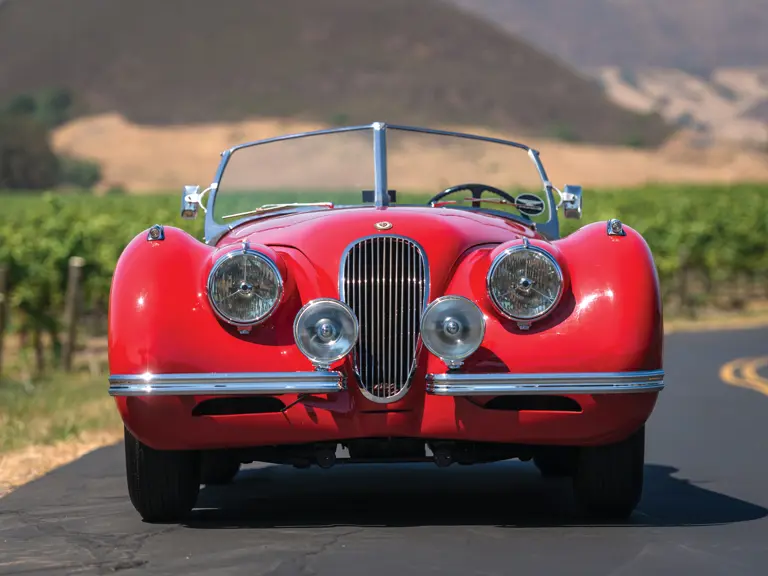
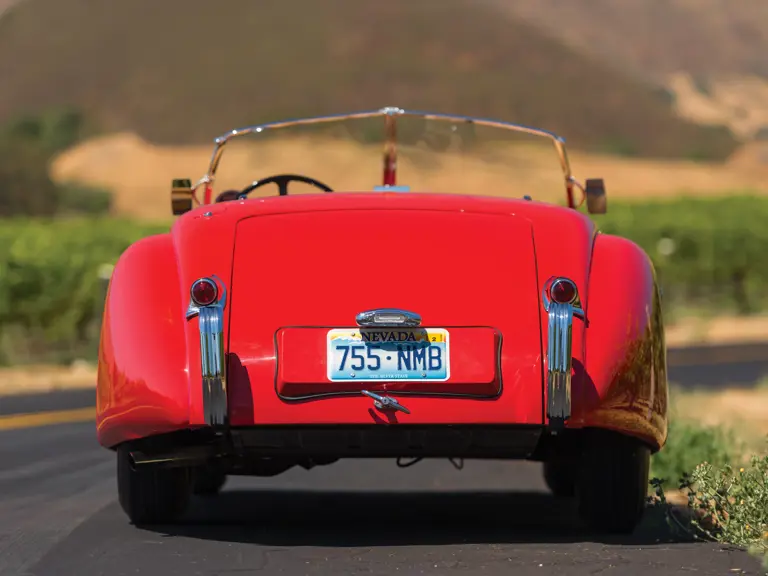
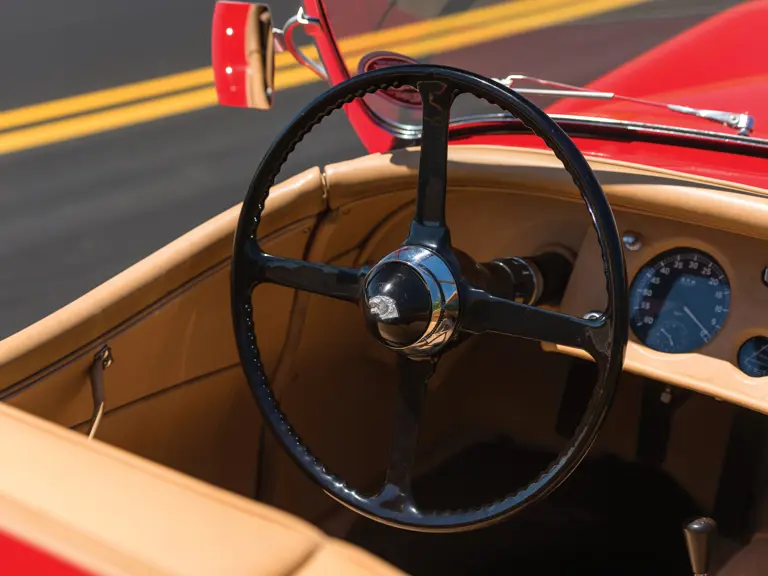
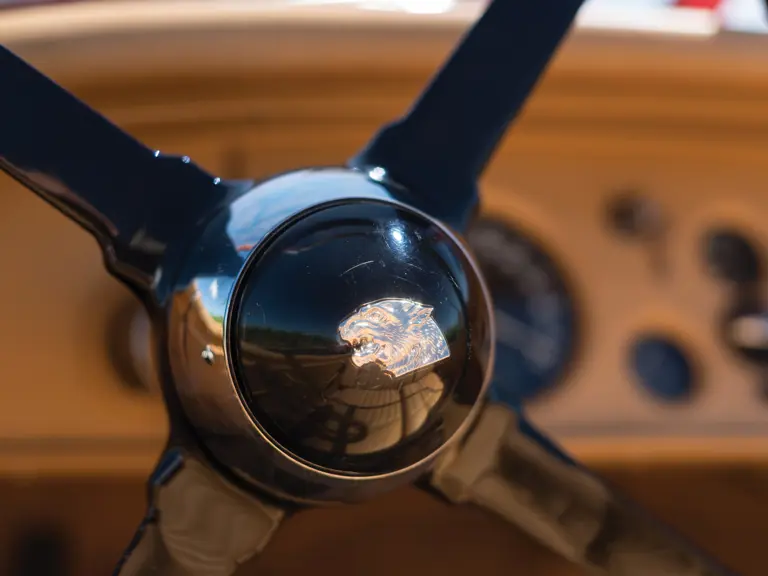
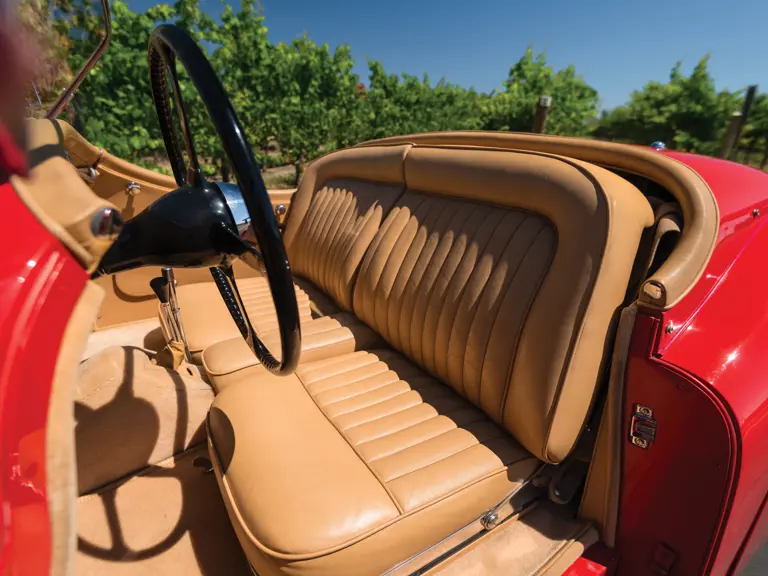
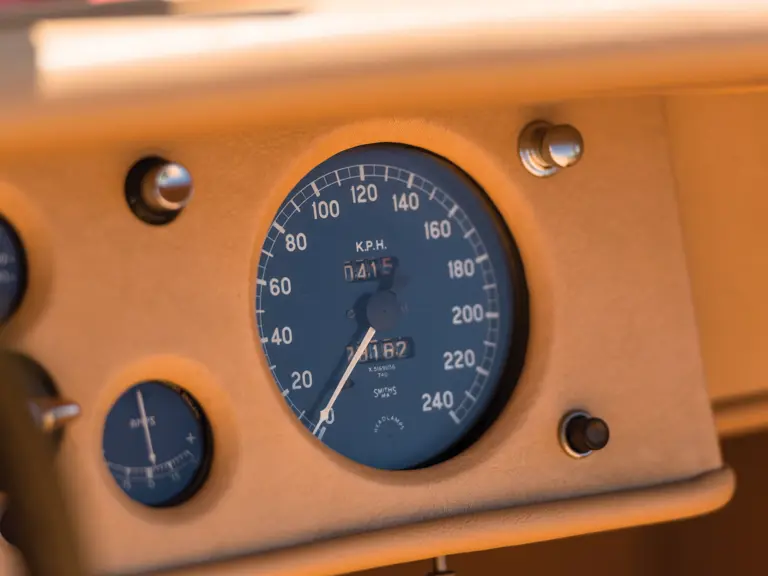
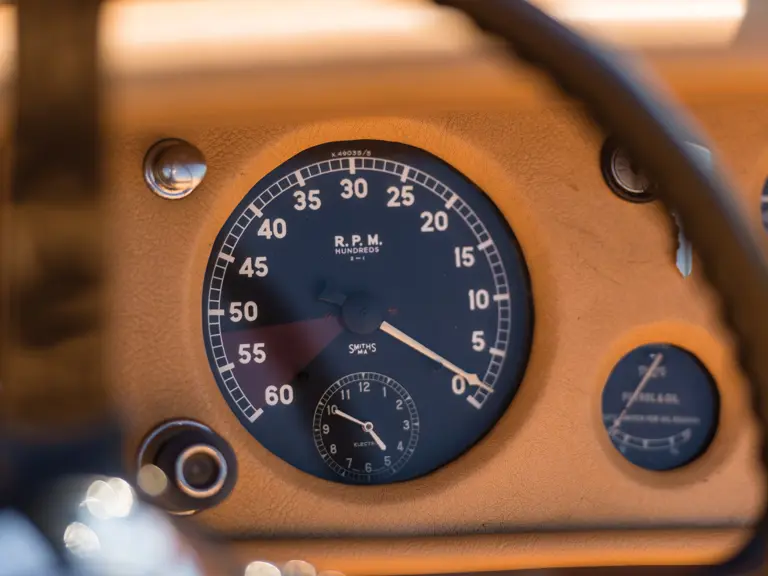
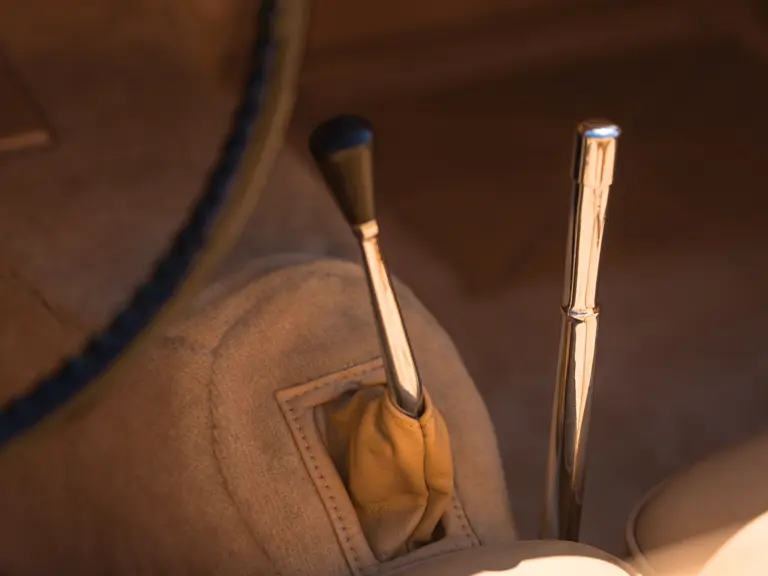
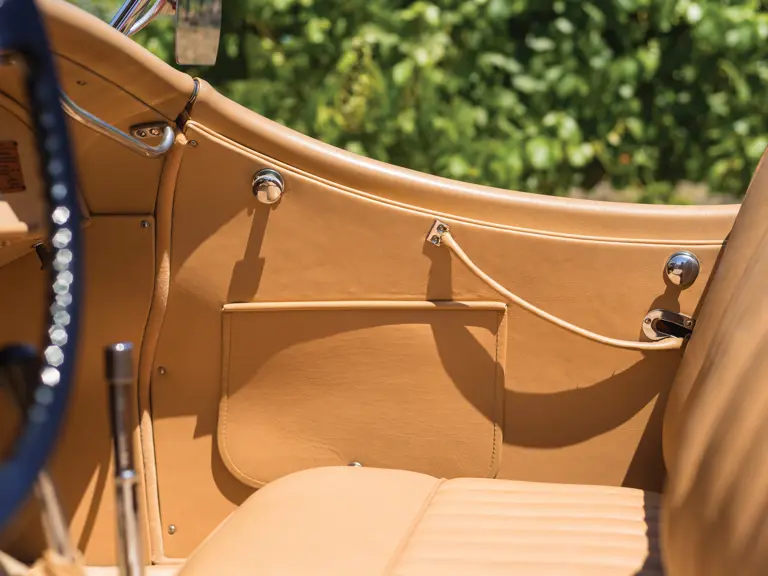
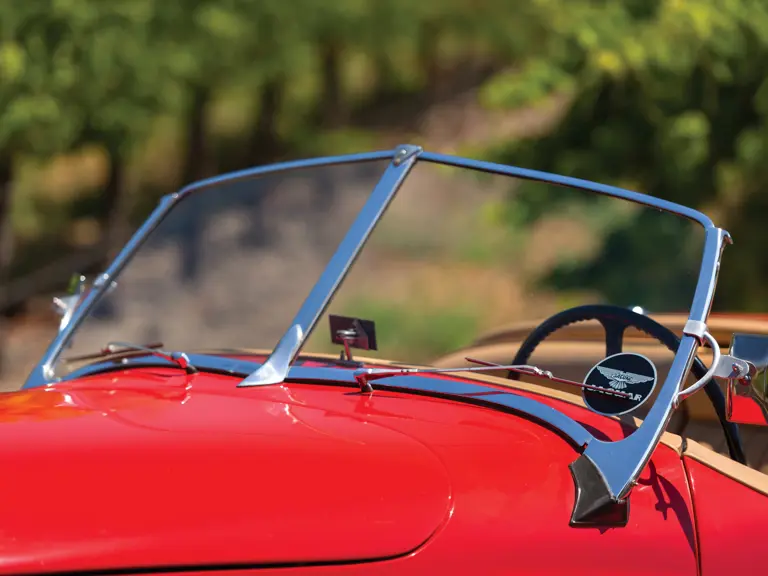
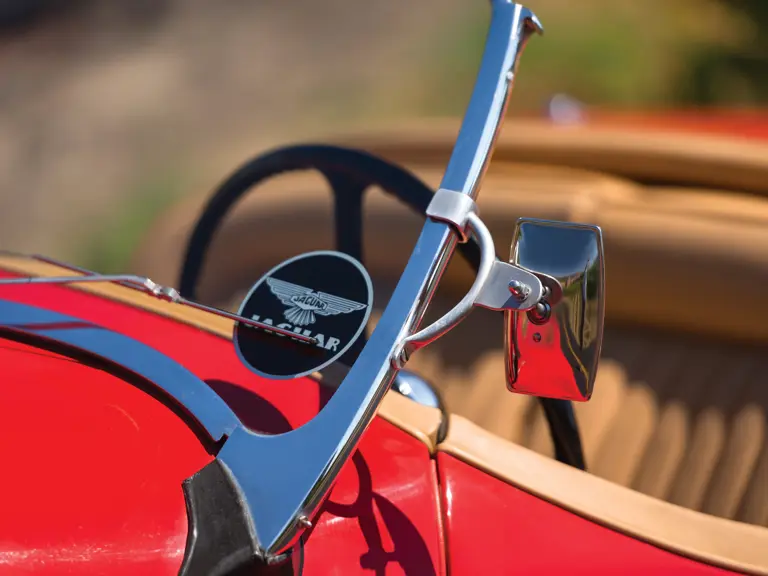
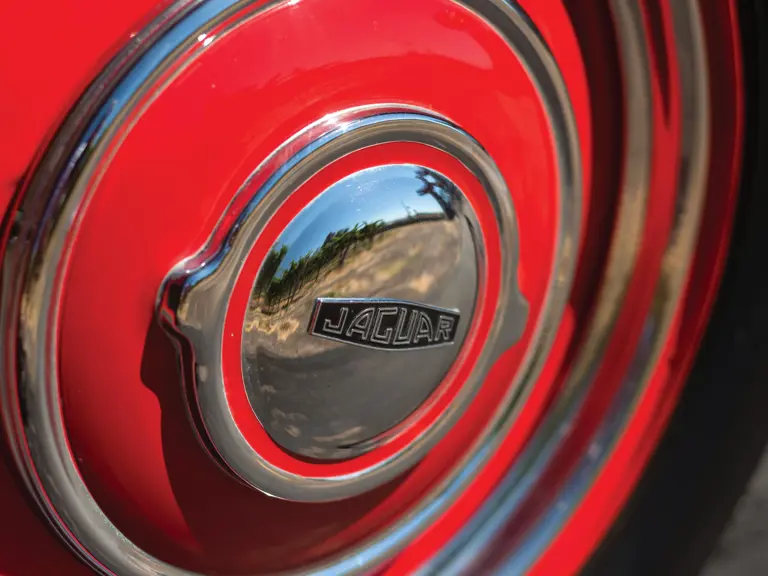
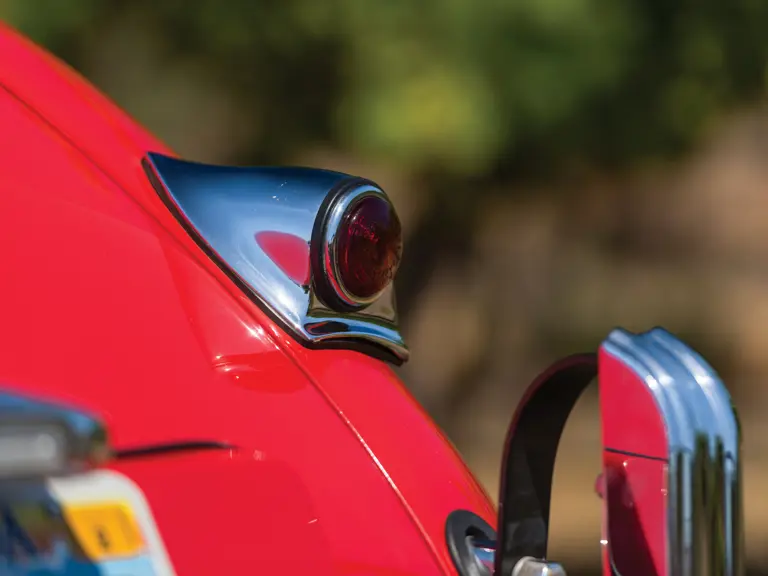
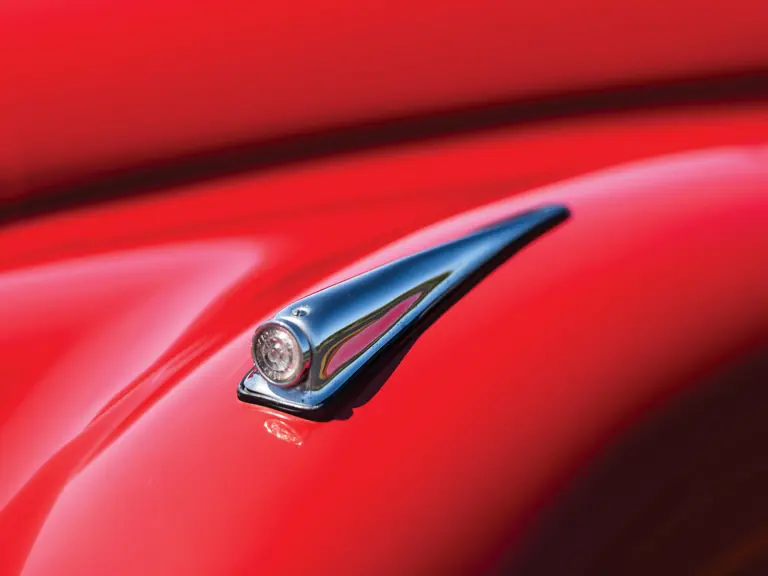
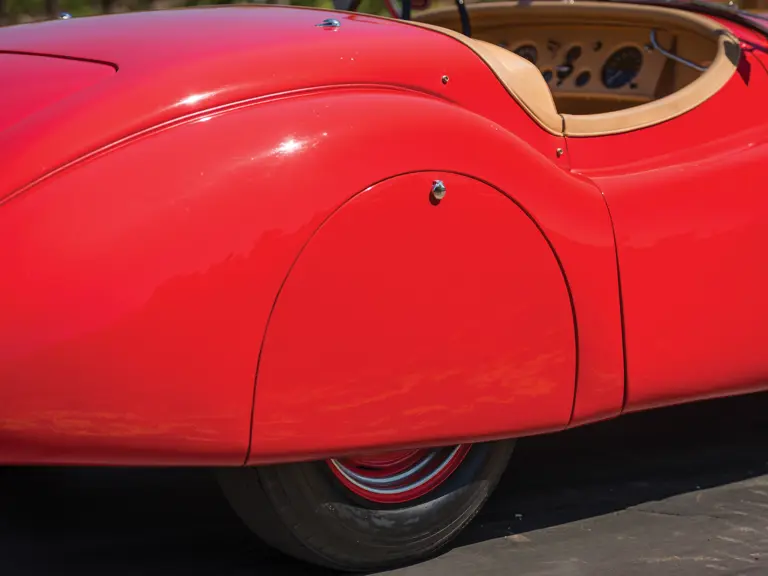
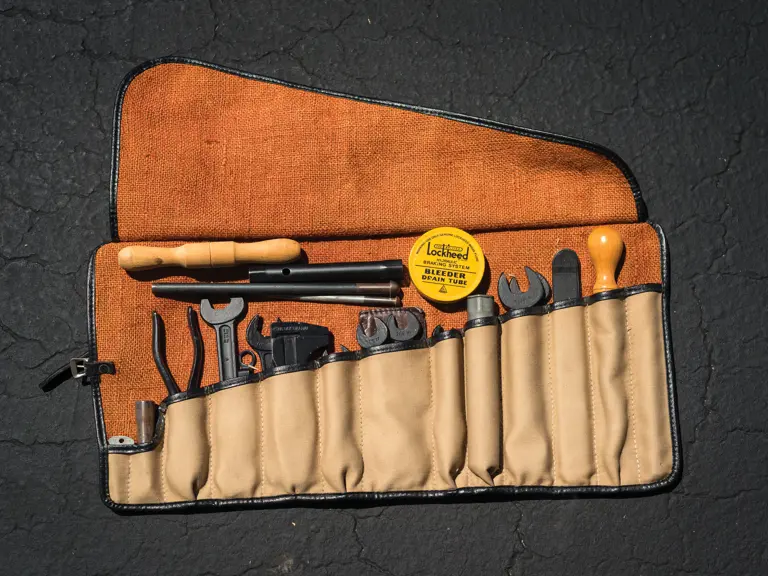
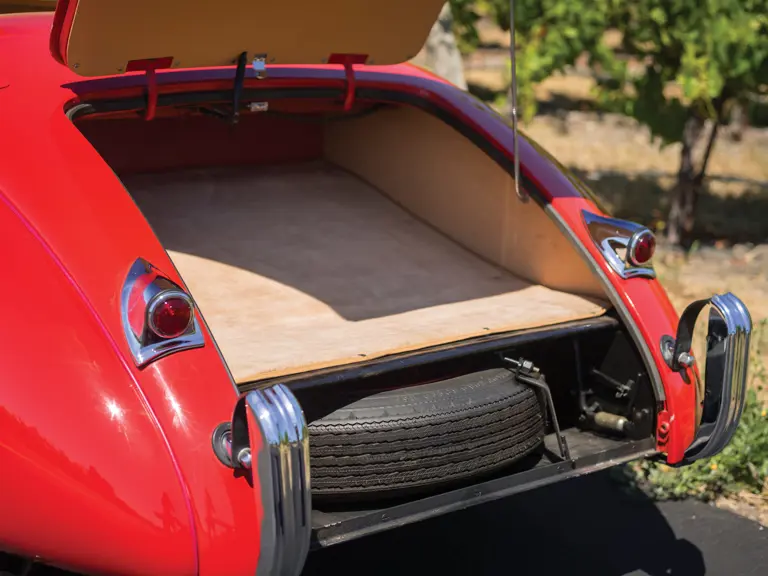
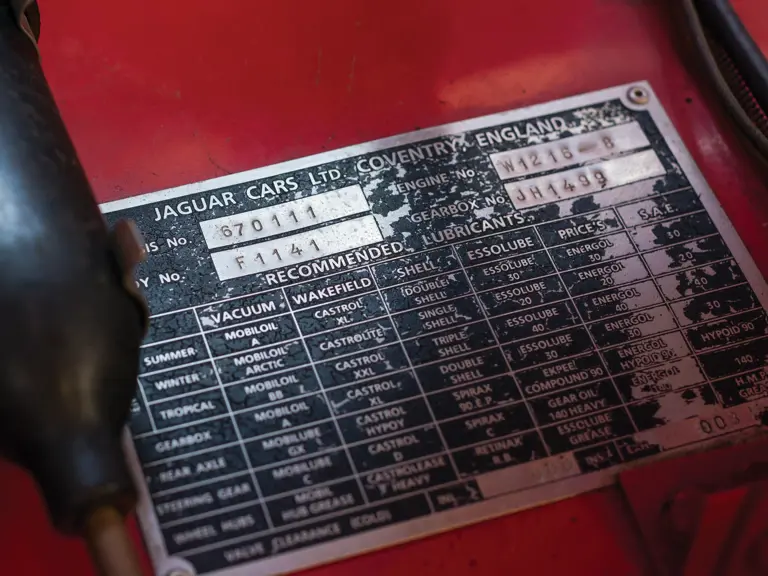
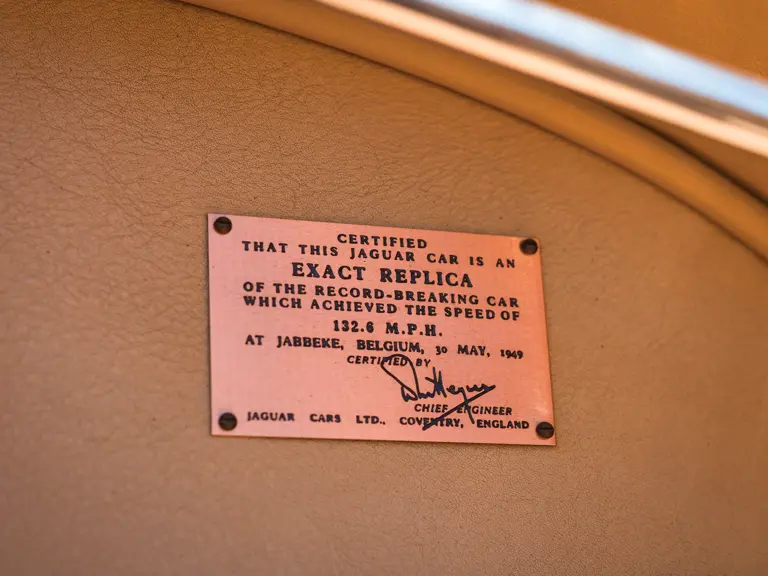
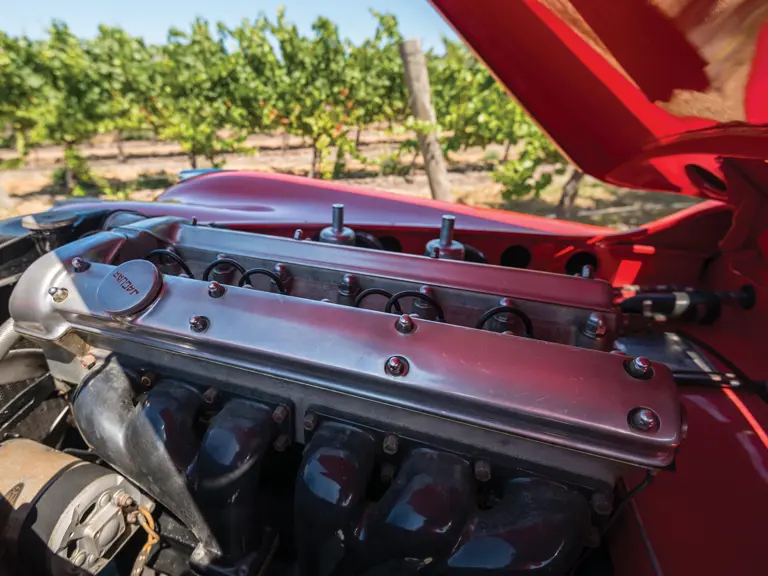
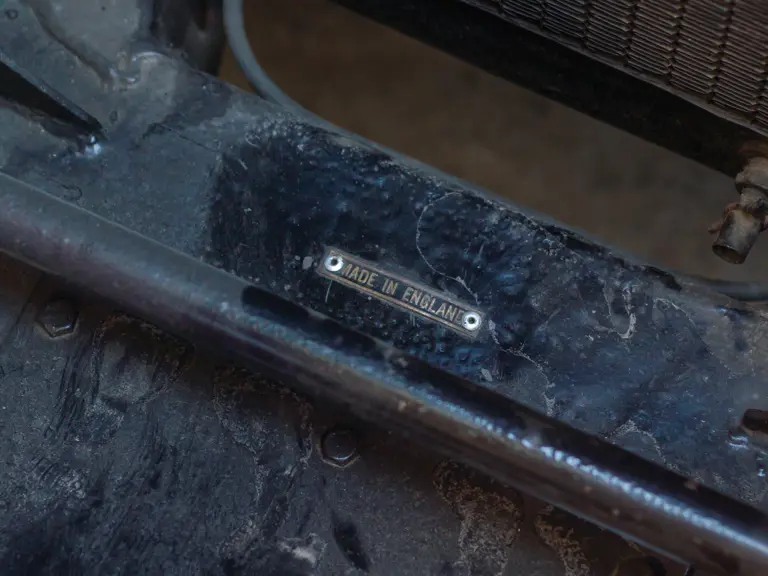
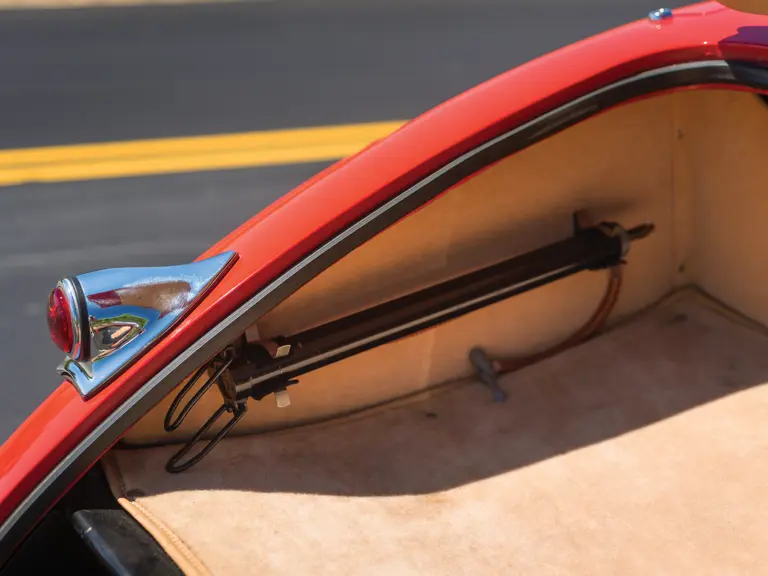
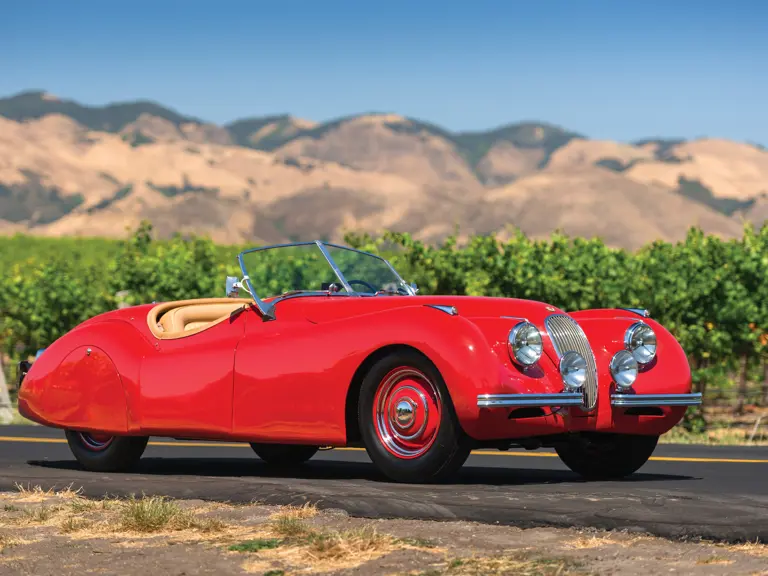
 | Phoenix, Arizona
| Phoenix, Arizona
